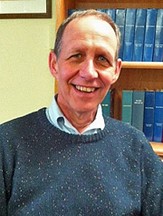The Climate Corner
- Share
- Tweet
- Pin
- Share
Transportation is the second largest contributor in Wisconsin to the carbon dioxide (CO2) emissions that are causing climate change. We have done a lot, and can do much more, to lessen this unfortunate impact without inconvenience and save money at the same.
We tend to think of “liberators” as war heroes, but one of the biggest “liberators” of the 20th century had nothing to do with any battles. The development of our modern highway system and highly reliable automobiles have done more to provide freedom of movement than any other invention in history.
This freedom has allowed us to wander about the country, visiting where we want, when we want. It has given us the means to live far from our jobs and shop and vacation where we want. Driving has transformed our landscape and changed the role of communities in our lives, as suburbs have developed outside of traditional town centers. It has created new opportunities and closed others, too often separating us from benefits of community living.
Driving is both a pleasure and a hassle. Cruising a country road with the top down is an American pleasure, while traffic jams and long crowded commutes have become a common experience, with too many cars traveling too far in too much of a hurry.
We do love to drive. Last year Wisconsinites drove nearly 60 billion miles. That’s 12,000 miles for every person in the state. It took about 2.5 billion gallons of gas to drive those miles. At $3.50 a gallon, that’s $10.5 billion and enough liquid to fill Lake Mendota, Madison’s largest lake.
Despite all of this driving, our air is far cleaner today than it was 40 years ago when we drove less. That’s true in part because of advances in the air pollution controls on our vehicles. Unfortunately, this valuable technology does not reduce the carbon dioxide (CO2) emissions. No matter what we do, every gallon of gas burned creates about 20 pounds of CO2.
This equates to 50 billion pounds of CO2 emitted from cars in Wisconsin annually. Add gas and diesel fuel emissions from trucks, buses and airplanes and the result is that nearly one third of our CO2 emissions come from transportation.
This CO2 acts as a heat trap warming our planet. Over the next several decades, the resulting changes in our climate will alter our landscape and our lifestyles in many ways. Scientists predict that Wisconsin’s climate in the future will mirror that of Arkansas today. If we don’t act now, our treasured north woods environment is likely to vanish.
So what can we do? We need to drive. We want the mobility that has become a large part of our lives.
The good news is that our cars are far more fuel efficient today due to federal regulations. That means less gasoline is used for every mile driven. Because of customer demand, cars will continue to get more efficient in the future. The difference for our climate between 20 MPG and 50 is huge.
We also are driving less. Our annual miles traveled have remained constant for more than a decade while population has increased, defying the projections of traffic engineers. Young people are driving far less than previous generations. Transit ridership, in decline for decades, is hitting record highs. Using the bus is no longer a stigma – it’s popular, as is urban car and bike sharing. Seniors are driving less because driving is more difficult – especially at night – as we age.
Finally, due to traffic congestion, people are tired of having to drive so much. They want to relax while traveling. Intercity bus travel, once the last refuge for the downtrodden, has become popular. Comfortable seats with WiFi and TV screens are common on most modern intercity buses. In cities, more riders are taking mass transit because it’s less hassle and far cheaper than driving and parking. People are demanding more modern and versatile transit systems.
These trends are encouraging, and there is a lot more we all can do to save money and our planet with little or no inconvenience:
• Don’t idle. Turn off your car when it’s not needed.
• Check your tire pressure. Incorrect tire pressure accounts for reduced mileage.
• Don’t exceed the speed limit. High speed driving is very inefficient.
• Take that heavy stuff you seldom use out of your trunk or pickup.
• Make your next car purchase a high mileage vehicle for errands and traveling alone.
• Combine trips to the grocery store with other errands to reduce miles driven.
• Car pool.
• Take a bus or train when you can. You’ll save money and it’s far more relaxing.
• Walk or bike. You’ll feel better and be healthier.
• Next time you move, think about the costs and environmental impacts of living far from your job and services you use.
• Tell policymakers we need more mass transit options, better infrastructure and wiser land-use planning.
Your choices are real. If we all take these steps, the benefits will be enormous.

Steve Hiniker is the Executive Director 1000 Friends of Wisconsin, a membership organization that promotes healthy communities and sustainable transportation strategies. Steve has long been involved in transportation issues including serving as a Dane County Regional Transit Authority commissioner, chief transportation policy adviser to Milwaukee Mayor John Norquist and has served on numerous governmental and nonprofit boards as a transportation expert.
The Climate Corner is a monthly column featuring a variety of writers from around the state and Door County addressing various aspects of the challenges and opportunities climate change presents. The Corner is sponsored by the Climate Change Coalition of Door County, which is dedicated to “helping to keep our planet a cool place to live.” The Coalition is always open to new members and ideas. Contact the Coalition at: [email protected].
